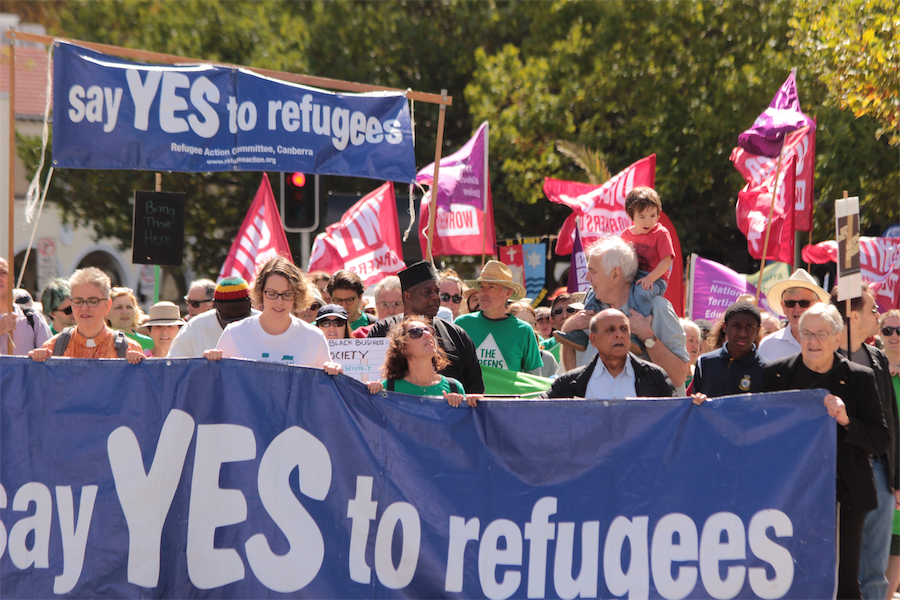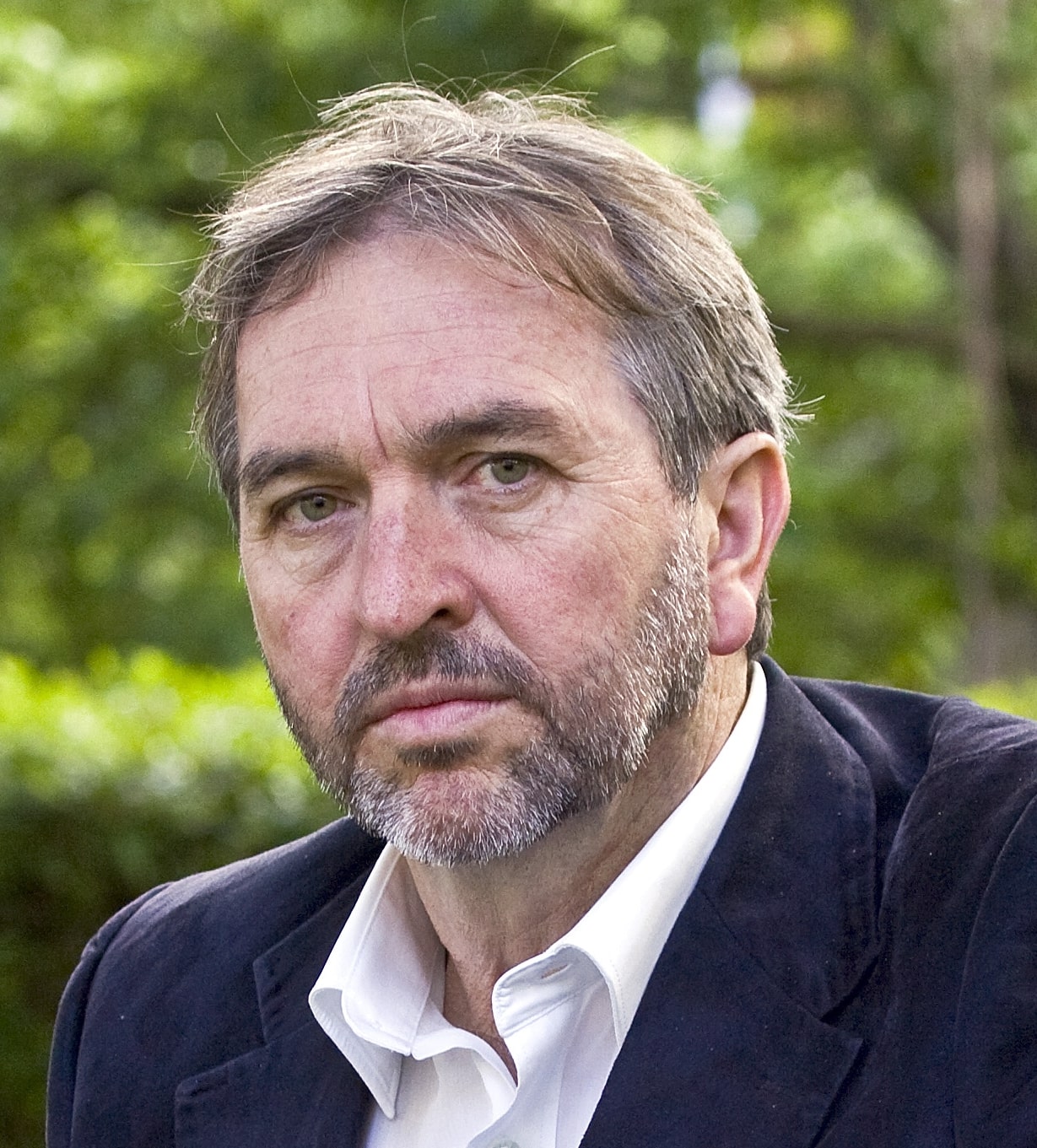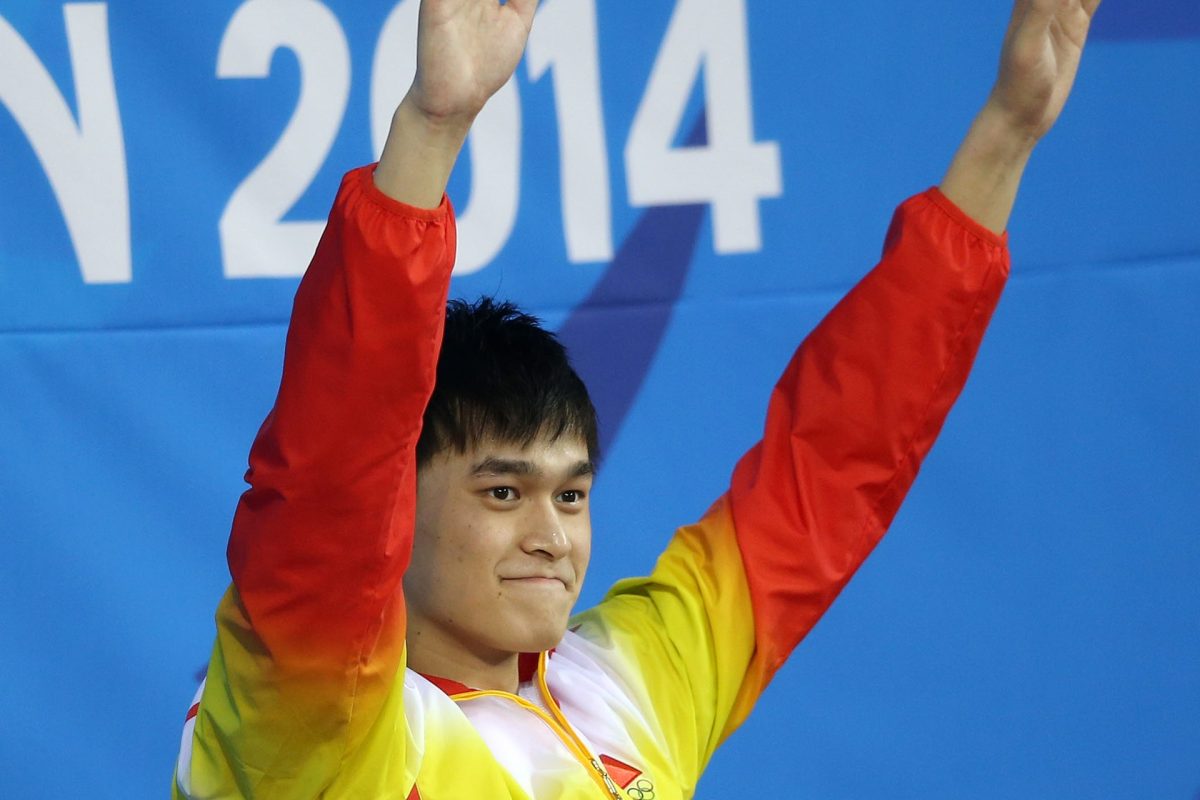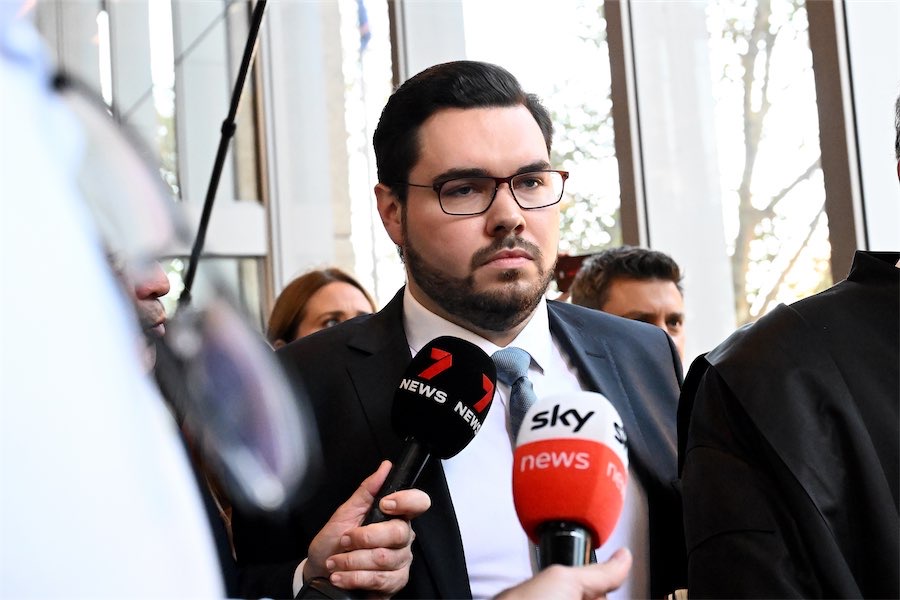
“As the most visible of migrants, often because of their means of arrival, refugees have become a lightning rod for Islamophobia and opposition to non-white migration,” writes JOHN MINNS.
Over the last few months – following the High Court decision that indefinite detention is unlawful, the consequent release of 149 people from immigration detention and the arrival of a couple of boats – refugees have again been at the centre of political debate.

The Liberal and National parties performed their usual role – stirring fears that none of us could sleep safe because of people who had already served their time for various offences.
Based on what turned out to be false information that one of these people had assaulted and stalked a woman in Melbourne, Deputy Liberal leader Sussan Ley tweeted “If you do not want to see Australian women being assaulted by foreign criminals, vote against Labor.” Even when the incident proved to be untrue, she and Peter Dutton continued to back the comment.
The weaponisation of refugees for political advantage has a long history in Australia – certainly since the 2001 “Tampa election”. And Australia’s policies of mandatory detention, indefinite detention and offshore detention have been seen as a model by anti-refugee politicians elsewhere – particularly in Europe.
Australian politicians, including Tony Abbott and Alexander Downer, have urged Europe to copy Australia. Some have tried to do so. In a duplication of Australia’s offshore detention centres on Manus Island and Nauru, first the British Conservative government and then Denmark’s Social Democratic government has had negotiations with Rwanda to send asylum seekers there. Italy, under the new right-wing coalition led by Georgia Meloni, announced plans in November to build camps in Albania to detain people attempting to come ashore. The Social Democrat Chancellor of Germany, Olaf Scholz, has said that he is open to a similar deal.
More broadly, as the most visible of migrants, often because of their means of arrival, refugees have become a lightning rod for Islamophobia and opposition to non-white migration. Anti-refugee sentiment has been central to the rise of far-right politics in many countries.
In the 1990s, only one western European government included a far-right party – the Northern League in the first Berlusconi government. In stark contrast, this century has seen the rise of far-right politics across Europe, the US and Latin America. In Europe, in the last two decades, far-right parties either joined or propped up governments in Austria, Denmark, Finland, Greece, Italy, the Netherlands, Norway, Sweden and Switzerland.
Hungary’s Prime Minister Victor Orbán has refused to allow even one Muslim refugee into the country – referring to them as “Muslim invaders”. Many of these far-right parties combine racist attitudes to Middle Eastern and African refugees and migrants with barely concealed anti-semitism. Orbán has just begun a billboard campaign urging people not to “dance to the tune” of, among others, Alex Soros, the son of George Soros – a frequent target of anti-semitic conspiracy theories.
The Polish Law and Justice Party (PiS), in office until recently, took the same position on excluding Muslim refugees. Prime Minister Robert Fico, of the Smer Party in Slovakia, has barred Muslim refugees and relied on even more extreme racist parties such as the Slovak National Party to form government.
Marine Le Pen of the far-right Rassemblement National won over 45 per cent of the vote in the 2022 French Presidential election. In the wake of the 2015 refugee influx to Europe, the Alternative for Germany (AfD), won 12.6 per cent of the vote and 94 seats in the Bundestag in 2017; the first time it or any such far-right party had done so since the war. It is now polling 19 per cent – making it the second most popular party.
Even where they have failed to enter government, these groups have shifted the politics of more conventional right-of-centre parties and even the social democratic parties.
In France, the 2022 presidential candidate for the mainstream conservative Republican Party, Valérie Pécresse, echoed the far-right, referring to the “Great Replacement”: the claim that migrants and their children will eventually outnumber the “French-born” population.
Trump, of course, made building “the wall” central to his last two presidential campaigns and has recently repeated his earlier Hitlerian remarks that undocumented migrants are “poisoning the blood of our country”.
The policies of these parties of the far-right are mixed. On economic approaches they vary from extreme neo-liberal to protectionist. On social policy they traverse relatively liberal positions on gay rights and feminism to vicious homophobic and misogynistic views.
Sometimes, they even combine widely different and incoherent positions on these questions within individual parties. But the one thing on which they all agree is the threat posed by “outsiders” – people of colour, Muslims and refugees.
Australia pioneered some of the worst of these refugee policies. And it pioneered the use of fear of refugees as a political weapon.
The LNP continues to do so. Australia has become a model for others overseas. This is an export of which we should not be proud.
On this Palm Sunday, March 24, thousands of Canberra citizens will march to change these policies. We should remember that the consequences of whether we succeed or fail are not confined to our shores.
John Minns is emeritus professor of politics and international relations at the ANU and a member of the Refugee Action Campaign, Canberra.
Who can be trusted?
In a world of spin and confusion, there’s never been a more important time to support independent journalism in Canberra.
If you trust our work online and want to enforce the power of independent voices, I invite you to make a small contribution.
Every dollar of support is invested back into our journalism to help keep citynews.com.au strong and free.
Thank you,
Ian Meikle, editor





Leave a Reply